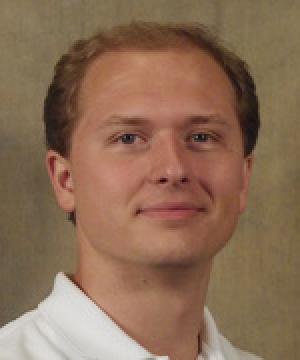
Abstract: This talk discusses novel numerical approximation and error analysis techniques for solutions of nonlinear, dispersive equations. In particular, we study those of Korteweg-de-Vries (KdV) type, as these equations have long been well-recognized as a paradigm class for the study of the interaction of nonlinear and dispersive effects. In particular, we consider the approximation of periodic solutions of nonlinearly coupled systems of equations of Korteweg-de Vries (KdV) type. For these systems, we construct and analyze (via both a priori and a posteriori techniques) two types of finite element methods. These schemes differ due to their treatment of the third derivatives appearing in the system. This difference is fundamental, causing one scheme to earn the moniker "conservative" due to its preservation of a fundamental invariant of the system, up to round-off error, while the other, seemingly-more-standard method is called "dissipative" for lack of this property. For both schemes, we prove convergence of a semi-discrete approximation through a priori techniques, highlight differences in the assumptions required in the analysis of each approximation technique. We construct a posteriori error estimators for both the semi-discrete and fully-discrete schemes and demonstrate their efficacy toward the construction of adaptive numerical methods. We provide numerical experiments that serve to validate the theory and highlight the beneficial properties of each of the two schemes, particularly the strength of the conservative class in long-time simulation.
Bio: Michael Morgan Wise is an applied mathematician and computational scientist concluding his Ph.D. in May 2020, having studied under Ohannes Karakashian in the Department of Mathematics at the University of Tennessee. His primary research interests as of late include finite element and discontinuous Galerkin methods, focusing on the construction of conservative and dissipative methods for nonlinear, dispersive equations in hydrodynamics and beyond. Also, he was recently invited to speak on his work in domain decomposition, particularly multilevel additive Schwarz methods for discontinuous Galerkin approximations of elliptic problems, at the 26th International Domain Decomposition Conference in Hong Kong, China. In his spare time, he is interested in machine learning-based discretizations of PDEs, including recently developed deep Ritz methods, and in developing data-driven discretizations for partial differential equations.
Last Updated: May 28, 2020 - 4:01 pm